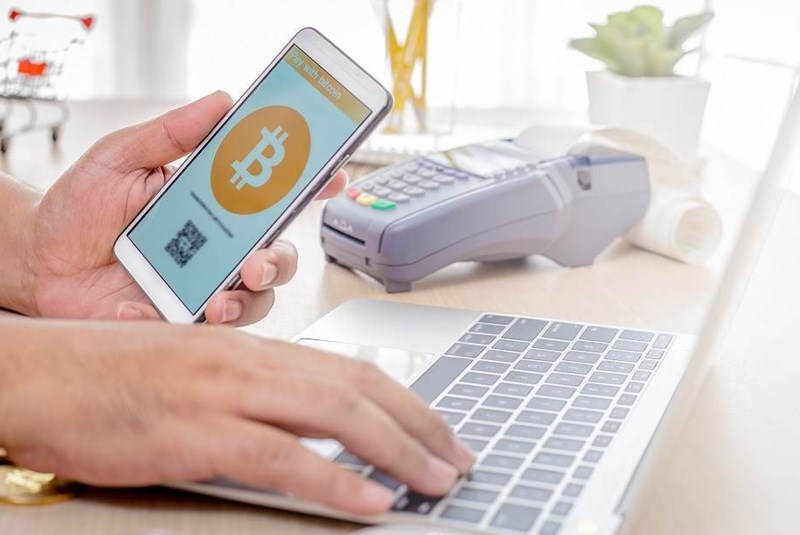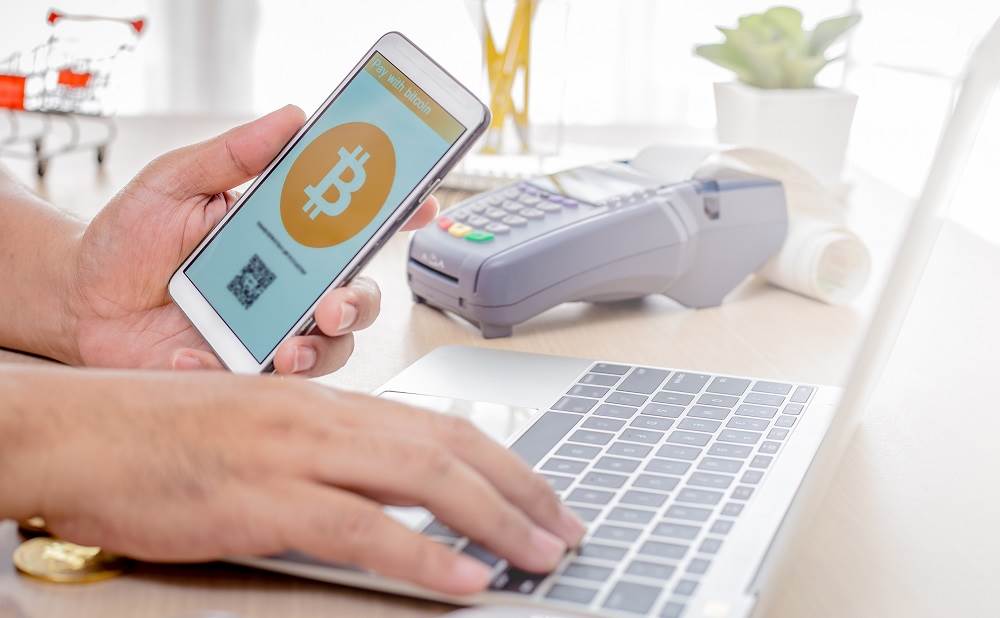Buying and Selling Real Estate with Bitcoin: Miami Gets Bit by the Bitcoin Bug

Dec 21, 2017 December 21, 2017
Earlier this month, a single bedroom condo in Edgewater went on sale, and made headlines. “What’s so special about that?” you ask. Well, this Miami condo seller will accept Bitcoin only. This 480 NE 30th St. condo is listed for 33 BTC. With Bitcoin trading at around $16,600 at the time of this writing, that translates to a price tag of roughly $547,800.
This isn’t the first instance of Bitcoin making its way into real estate. There is a building in Manhattan’s Lower East Side that’s accepting Bitcoin for its upcoming condos. Another upcoming development worth £250 million in Dubai is priced in Bitcoin. In fact, Texas has already gone ahead to complete the first-ever Bitcoin-only real estate transaction in the U.S. this September (although dollars actually took part in it, as you will find out below . . . ). With more and more people getting ready to embrace this digital currency, it’s time we decoded this cryptocurrency and its future in Miami’s real estate.
Why is Bitcoin important?
Bitcoin is no longer just digital cash lurking in the dark corridors of internet transactions. This cryptocurrency has made its way into real world transactions for retail, restaurant and art. People are already buying their morning coffee using Bitcoin. It is touted to be the currency of the future. And now, the Texas deal proves you can even pay for your next home using digital cash.
How does a Bitcoin transaction work and how safe is it?
In order to carry out a Bitcoin transaction, you would need an amount, a sending address, a receiving address and private keys. In order to make a payment, the user will enter the amount and receiving address of the person being paid along with the private keys associated with the digital cash. The transaction is then verified by miners who will confirm the block of exchange to be within the Bitcoin “blockchain” so it can be completed.
Advocates of this digital currency have utmost faith in the unique “blockchain” technology backing it. Firstly, the blockchain itself stands as proof of each and every transaction carried out since the inception of Bitcoin. And secondly, the entire system is secured via mathematics and complex algorithms - asymmetric cryptography to be precise.

How would a real estate sale be carried out using Bitcoin?
As of now, there are few ways we know to make a Bitcoin real estate sale happen in practice:
- Accept Bitcoin for Your Property, but Close in Dollars. If the asking price is listed in U.S. dollars, then the transaction can follow in on the footsteps of the Texas sale we mentioned above. According to a CNBC article, the Texas sale ultimately happened in Dollars. A Bitcoin payment service provider converted the Bitcoins to Dollars for the buyers, which enabled the rest of the closing to take place. We are guessing that the contract had at minimum a clause in it to allow for the closing to be postponed but not cancelled if the conversion rates weren't favorable to the buyer.
- Sell Real Estate in Bitcoin, and Add Volatility Protections. According to Carlos Casuso, a real estate attorney in Miami, if both the buyer and seller want to keep the transaction exclusively in Bitcoin, they can set an upper and lower limit for the US Dollar value of the bitcoin for the day of closing. Since Bitcoin prices vary on a day-to-day basis, if the value moves lower than the expected price of the property, the seller will have the upper limit as a cushion. On the other hand, if the Bitcoin value escalates, the buyer won’t feel cheated by paying the lower end of the limit. If the Bitcoin value falls out of those ranges for day of closing, the buyer and seller can agree, for example, to automatically modify the sale price based on the current dollar value on day of closing or simply agree to allow either party to cancel if they don't like the deal.
Feel free to comment below if you’ve heard of or come across any other innovative and practical ways to make real estate transactions using Bitcoin.
Why real estate buyers and sellers would want to use Bitcoin?
Selling your condo for Bitcoin definitely increases your client base in an instant. This digital currency almost dissolves borders. Since Bitcoin has its own value system and does not succumb to the inflation of fiat currency (read real world currency), it makes clients less sensitive to the fluctuations of their country’s currency value.
It also comes in handy for clients living in countries with stringent controls on the outflow of cash. Since these limits are not applicable on Bitcoin, foreign clients can go for higher value transactions. Even better, their government may not be able to track the Bitcoin purchases or even have laws governing out-of-country Bitcoin asset purchases, thereby allowing the buyer to completely fly under the radar of currency controls. However, buyers looking at very high value deals would need to check the transaction limits prescribed by their Bitcoin exchange such as Coinbase, BitPay or CoinKite, in case they intend to use one.
Another reason one might want to sell using Bitcoins is that you would have the choice to hold the Bitcoin in your wallet and use it for future transactions. You could also hold on to the Bitcoin till it hits a profitable value and cash it into dollars using the payment service providers/exchanges mentioned above. This seems pretty lucrative considering that the price for this cryptocurrency has surged 900% since its creation in 2009.
Downsides and risks of selling real estate using Bitcoin
Just like everything else in life, selling real estate for Bitcoin has its downsides. One of the biggest advantages of this cryptocurrency is also its biggest disadvantage – price volatility. If Bitcoin prices can move up quickly to rake in a profit, they can also easily dive southward. So, setting an upper and lower limit (as mentioned above) can give sellers a cushion against this volatility. Also, sellers willing to take Bitcoin for property might want to convert it into cash or purchase something tangible like property or other items to lock in their profit.
Downsides and risks of buying real estate using Bitcoin
One of the most obvious downsides of buying real estate with Bitcoin is needing fiat (real) currency to cover ancillary costs. Purchasing a condo or home comes with additional costs involving inspections, title searches, transfers, legal fees, permits, agent fees, etc. However, not all of these service providers are willing to accept a Bitcoin payment – fiat currency is the only recourse in most cases.
Also, Bitcoin value moves on a day-to-day basis. So, if you’re planning to buy real estate using Bitcoin it would be safe to have extra (digital) cash in your wallet to cover for any last-minute changes that deviate from the price tag on closing day.
Another pitfall of buying real estate with Bitcoin is the lack of loans. While SALT is making loans available for the Bitcoin collateral, a majority of banks and financial institutions are still not comfortable with the idea of backing digital money. You may be able to your Bitcoin "asset" to convert to US Dollars for your down payment, for example, but ultimately you are paying in Dollars.

Does a buyer or seller get any benefit of anonymity with a Bitcoin transaction?
Though Bitcoin is touted to be an “anonymous currency”, that is not completely true. Each participant of a Bitcoin transaction acquires a sending/receiving public address. Although these addresses run up to 30 characters long and are virtually incomprehensible, they can still be viewed publicly. The repeated use of an address can reveal patterns and ultimately lead to the identity of the owner.
While it is recommended to use a new address for every single transaction, and newer wallet software achieves that, it still does not make you 100% anonymous. Freely available analytical tools and blockchain explorers can link single transactions to form a chain and reveal the owner’s identity. So, while it does provide you with a certain sense of privacy, the Bitcoin user won't remain 100% hidden.
Are there any taxes on Bitcoin transactions?
The IRS prescribed some guidelines for cryptocurrencies such as Bitcoin in 2014. First of all, cryptocurrencies will be treated as property, and not currency, for tax purposes. So, in the eyes of the IRS, you are making two transactions when buying real estate with Bitcoin. First, you are selling property (Bitcoin). Second, you are using the proceeds of that sale to make your purchase. And, each time a property is sold, it has to be reported in your tax forms.
If, at the time of your purchase, the Bitcoins have appreciated in value from when you first obtained them (which most likely they would have), you are liable to pay a capital gains tax on the difference in value. Whether you pay a long term or short term capital gains tax relies solely on how long you’ve held them. If you held them for less than a year, you will be taxed for a short term gain and vice-versa.
Technically, the IRS holds you responsible for listing every purchase you make in a year using Bitcoins and pay taxes on your gains, no matter how small they may be. Even cashing out your Bitcoins makes you liable to pay a capital gains tax. What one must bear in mind is that each and every Bitcoin transaction is stored in the blockchain. This means a highly motivated IRS could end up finding every purchase you make.
So, will you be willing to accept Bitcoin for your Miami condo? Or, if you are looking to buy a Miami condo for Bitcoin, you can find all Miami condos accepting Bitcoin here. Or just contact us directly, we will be more than happy to help!
Share your thoughts with us
Your Miami Condo Awaits
Recent Posts









